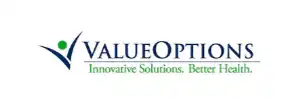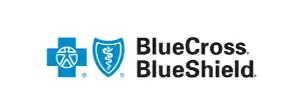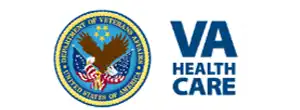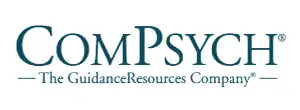PTSD & Trauma Treatment Center in Nashville, TN
Post-traumatic stress disorder (PTSD) is a mental illness that individuals develop after experiencing or witnessing a traumatic event. Those events can range from military combat, sexual abuse or assault, and natural disasters, to accidents. People suffering from PTSD experience flashbacks, nightmares, changes in mood, and avoidance of certain social activities.
At Southeast Addiction Center, we understand how PTSD can interfere with daily life. Our PTSD and trauma treatment center in Nashville, TN, provides treatment options to help our clients regain a better quality of living. Seeking help for PTSD is essential to learn coping strategies for you or a loved one.
PTSD and Substance Abuse in Tennessee
To meet our client’s needs, we offer various treatment services customized to each client’s specific needs. Because our programs are flexible and individualized, we can reach all who need support, regardless of their home or work situation.
- Partial hospitalization program (PHP): The highest level of care we offer is PHP. This program requires that our clients spend at least 30 hours a week in our PTSD treatment program and return home afterward.
- Intensive outpatient program (IOP): Allows clients to continue carrying out their obligations while receiving several hours of care each week in our facilities.
- Outpatient treatment: With this level of care, our clients receive effective treatment at a cadence that meets their needs. We do not recommend this as a first step to recovery, particularly for patients with co-occurring substance abuse disorders who need a dual diagnosis treatment.
- Sober living homes: Our clients have access to sober living facilities, allowing them to live on-site with others experiencing the same journey as they are. They can bond with other clients experiencing PTSD and participate in group therapy to develop coping mechanisms.
- Medical detox: We offer medically-assisted detoxification services to clients who require it as a first step in their treatment program. Our detox treatment aims to help clients overcome their dependence on substances and rid their bodies of drugs before entering an IOP or PHP program.
- Integrated care: Our integrated care model involves all aspects of our client’s care and is led by a team of healthcare professionals. We combine treatment and preventive health to form individualized plans for our clients.
Because Southeast Addiction Center in Nashville is independently owned and operated, this gives us complete control over our operations, services, and company culture. In turn, we can be more receptive to our client’s needs and build lasting relationships and client loyalty.

Symptoms of PTSD That We Treat
The intensity and types of symptoms will vary for each person, but there are common signs to look for if you or a loved one might be experiencing PTSD. Those include behavioral, psychological, mood, and sleep changes.
- Behavioral: Agitation, irritability, hostility, the constant need to be on guard, self-destructive behavior, or social isolation
- Psychological: Flashbacks, fear, severe anxiety, or mistrust in others
- Mood: Loss of interest or avoidance in activities, feelings of guilt or shame, intrusive thoughts, difficulty concentrating, or feelings of loneliness
- Sleep: Insomnia, nightmares, or other changes in sleep patterns
Our PTSD Treatment Services
Southeast Addiction Center offers several evidence-based treatment approaches for treating PTSD.
- Individual therapy: During individual therapy, our clients work with a therapist one-on-one to address their mental health disorders. These private and confidential sessions allow our clients to openly explore their feelings, behaviors, and past experiences that caused the trauma.
- Post-treatment support: Our post-treatment support comes in various forms specific to each client. This treatment can include ongoing individual therapy, follow-up appointments, and family therapy sessions. Family therapy is important because it focuses on resolving conflicts in the family unit while opening up lines of communication to address any dysfunctional patterns of behavior.
- Medication management: This treatment ensures that prescribed medications are taken correctly and desired health outcomes are obtained. Our team will monitor your patient regime, educate you on your medications, and track any side effects or dangers with mixing with other medicines.
Through individualized care in achieving successful outcomes in PTSD treatment, our therapists help clients to understand their emotions, develop coping skills, and make positive lifestyle adjustments.
What are the Causes of PTSD?
The U.S. Department of Veterans Affairs National Center for PTSD provides common causes of PTSD and the types of trauma individuals experience.
- Combat exposure refers to an individual exposed to traumatic events while at war and serving in the military.
- Child abuse trauma stems from abuse, neglect, or consistently witnessing violent acts as a small child or during adolescence.
- Terrorist attacks can lead to PTSD for individuals who have witnessed or survived the event or acted as first responders on the scene of a terrorist attack.
- Sexual or physical assaults can cause symptoms of PTSD because individuals continue to play the experience back in their minds and cannot establish healthy social and, sometimes, family relationships.
- Severe accidents like car wrecks, depending on the severity of the incident, can cause persistent flashbacks and distressing memories to the point where some individuals can no longer drive or feel comfortable taking public transportation.
- Natural disasters, including fires, tornadoes, hurricanes, floods, or earthquakes, can cause PTSD. Individuals who survive these events can fear social settings, leaving the house, or going to unfamiliar places for fear of a reoccurrence.
Southeast Addiction Center’s Nashville Team
When you work with our team at Southeast Addiction Center, you will feel a part of a supportive community where the primary goal is to help you build strategies for living a wholesome life. We designed our evidence-based programs to deliver results that lead to long-term recovery and an escape from the cycle of substance abuse as a means of coping.
Our team of medical professionals are well-versed in PTSD treatment and the necessary steps to recovery. You can regain control of your life through an individualized treatment plan in a comfortable and supportive environment.
Insurance and Payment Options
Paying for PTSD disorder treatment should not come as a burden, and we want all those experiencing it to receive the treatment they deserve.
Southeast Addiction Center participates with many insurance companies as an out-of-network provider. We accept the following major insurance plans and offer payment options for those paying out of pocket.
- Anthem
- Blue Cross Blue Shield
- Bright Healthcare
- Com Psych
- Etna
- Humana
- VA Healthcare
- Value Options
Contact Southeast Addiction Center for PTSD Treatment Today
Our team is here to help you with the admissions process at every stage. We’ll start by having a private and free phone call to ask pre-admission questions to help us understand your situation and develop an individualized mental health treatment plan. We’ll also be able to help you confirm your insurance and the logistics of receiving treatment.
If you’re ready to step the next steps to coping with and treating PTSD and any associated substance use disorders, call us. Our team understands each person has a unique set of needs, and we have a team equipped to handle each. We’re ready to help you or your loved one. 24/7. Make that first step and call: (615) 694-1971 or email us: at info@southeastaddiction.com.
Our Programs
- Partial Hospitalization Program (PHP)
- Intensive Outpatient Program (IOP)
- Medical Detox
- Sober Living
About Us
- Our Team
- Tour
- Testimonials
- FAQs
Your Recovery Starts Here
Our admissions team is ready 24/7 to guide you through the process, from admission to coordinating travel, treatment programs, and more.
Most Insurances Accepted










Drug Addiction Frequently Asked Questions (FAQ)

Anyone can develop an SUD. Factors contributing to increased risk for addiction include genetics, family history of substance abuse, the environment, and the age at which someone is introduced to a substance.